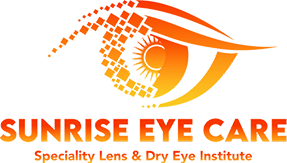Most of us have the basics: bleach, oven cleaner, air freshener, furniture polish, and window spray. Did you know that chemicals found in these kinds of cleaning products can be toxic and harmful to your health? In small amounts, they generally don’t cause much damage. But when used on a regular basis or in a poorly ventilated area, the level of toxicity rises.
If you’ve ever gotten a headache or developed watery eyes after scrubbing down your kitchen counters, you may have a sensitivity to the chemicals in your household products.
That Burns
Volatile Organic Compounds
Volatile Organic Compounds, or VOCs, are gases that are released into the atmosphere, usually from burning fuel sources like wood or gasoline. They can also be found in many household products such as degreasers, aerosol sprays, and disinfectants. These gases are released not only during use, but also when kept in storage or transported between locations.
VOCs are generally less harmful when released outdoors, as the gases are absorbed into the atmosphere. However, in an indoor environment, the gases have 10 times the concentration!
People may come into contact with these compounds by breathing them in or through direct contact with their skin, which can lead to any of the following symptoms:
- Headaches
- Dizziness
- Respiratory problems
- Nausea
- Impaired coordination (ie. difficulty walking straight, buttoning a shirt, or holding a pen)
- Eye problems (ie. itching, burning, redness, or soreness in the eyes)
Other Chemical Irritants
Chemicals like sodium hydroxide can be found in oven and drain cleaners. Air fresheners and leather cleaners may contain formaldehyde, which in high amounts, has been linked to certain types of cancer. Even laundry detergents and stain removers can contain irritants.
If you’ve been exposed to these types of chemicals, you may experience trouble breathing, irritation in the eyes, nose or throat, or develop a skin rash. So, use extra caution when handling these kinds of cleaning supplies.
If your job exposes you to higher levels of chemicals from cleaning products, such as janitorial staff or sanitation workers, artificial tears and protective eyewear can help. Use them daily to give you relief from chemical agents that irritate the eyes. Ask your optometrist about which types are best for you.
Immediate Eye Care
Should your eyes come into contact with chemical substances or VOCs, immediately irrigate your eyes with plenty of cold water. Tilt your head so that the exposed eye is down, to avoid flushing the chemical into the good eye, and avoid rubbing your eyes. Rinse your eyes for 15 minutes – this will flush acidic or alkaline chemicals out of the affected areas. This should be your first line of defense, even before calling a doctor.
If you have saline solution or contact lens solution readily on hand (non-peroxide only), administer several drops of solution to the affected eyes. Contact your eye doctor or, if need be, visit an emergency room. Chemical burns can cause serious damage to the cornea, so schedule a checkup with your eye doctor as soon as possible.
5 Ways to Lower Your Risk of Chemical Exposure
Despite the potential harm to your health, there are some things you can do to minimize over exposure to these dangerous chemicals.
1. Wash Your Hands
Our mothers always said it, and with good reason. The #1 way to lower your risk of health issues from chemicals is to wash your hands after handling cleaning products. Use warm water and soap and be sure to wash the hands thoroughly, even if you used gloves. Consider washing to your upper arms in case of a splash or splatter, such as from paint or aerosol sprays.
2. Don’t Rub Your Eyes
Avoid touching or rubbing your eyes until your hands have been completely washed and are clear of any lingering chemical substances. Even a little foreign substance in the eye can be incredibly painful. If you’ve ever had an eyelash stuck in your eye, you know what we mean. So just imagine how severe the pain could be if you accidentally touched your eye after contact with bleach or glass cleaner.
3. Go Outside
Get some fresh air. If you feel dizzy or nauseous, if your eyes burn or you have trouble breathing after using cleaning supplies, go outside. A short walk in the fresh air can quickly open the nasal passages and clear your eyes from strong chemical vapors.
4. Open Some Windows
Make sure there is plenty of ventilation when cleaning or using any chemicals like paint. Open windows or turn some fans on to circulate the air more effectively.
5. Read Labels
Read labels and warnings so you know what’s in the cleaners you’re buying and how to use them safely. Consider trying out some natural cleaning supplies that don’t contain VOCs.
About “Green” Cleaning Products
In recent years, so-called “green” products have made their way onto store shelves, but just how green are they, and are they safer than standard ones?
While baking soda and vinegar have long been touted and praised for their cleaning abilities, there is a seeming plethora of new natural disinfectants and general cleaners on the market.
Buzzwords to Look out For
There are some buzzwords you can look out for, which are clues that certain products may not be as natural or as safe as you think. Consumer product manufacturers aren’t required by law to disclose the ingredients in artificial fragrances, so labels may simply list “fragrance” on their ingredient list. Items labeled “natural” are also vague; they don’t have to be specified, and not all natural items are necessarily safe. However, if something is listed as “flammable”, that’s a pretty sure sign of a chemical ingredient.
Chemicals & You
Simply being aware of your body’s reaction to the everyday cleaning supplies in your home is the first step. Use these items safely and with caution. For any severe eye pain – especially if you notice any vision changes – talk to your eye doctor right away.






